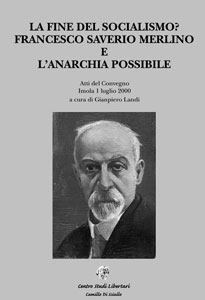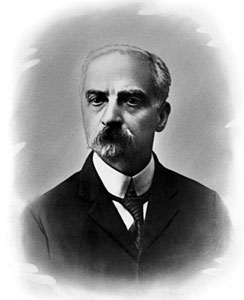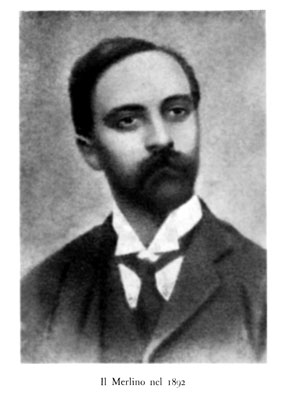|
libertarian socialism
Rediscovering Merlino
by Gianpiero Landi
Not the Magician, but Francis Xavier, anarchist militant in his youth Socialist at an older age, a lawyer and thinker, a sharp critic of Marxism, one of the forerunners of the "liberal socialism" or "libertarian." I just went out the proceedings of a conference of studies on him, held in Imola in 2000.
Here we publish the introduction of one of the organizers of the conference.
|

This volume contains the reports and interventions of the Study Conference on The End of Socialism? Francesco Saverio Merlino anarchy possible, promoted and organized by the Association "Art and Thoughts", held in the Hall of the season at Imola on 1 July 2000. Giving to print the Acts of Congress, almost 10 years after it was held, probably makes some necessary explanation. It is not so unusual to justify a delay, for which, however, the editor assumes its responsibilities honestly, but rather to answer the question whether the publishing operation - after all this time - still makes sense. We think so, and we believe that the materials that offer the reader keep intact much of their validity. We go up to even think about that now as never before, in an age like ours, characterized - at least in Italy and Europe - a crisis of the left that seems momentous and irreversible, reflecting on the political thought of F. S. Merlino and more generally on the character and prospects of socialism, which was launched by our Congress, appeared so timely and necessary.
 |
Francesco Saverio Merlino |
 Socialism or barbarism Socialism or barbarism
Socialism is still needed, especially since the alternative is barbarism (the Rosa Luxemburg had already clearly understood a century ago). Barbarism that it is becoming more widespread in the contemporary world, although many seem not to realize it. On the other hand, it is undeniable that socialism itself needs to be refunded. Merlino can help us, with its fundamental distinction between essence and form of socialism, and especially in his critique of Marxism and collectivism. The identification between political radicalism and Marxism condemned to defeat the radicals, or however far away from the historic achievements ideal aspirations of departure. But no less important is the criticism of Merlino anarchism. The "review required" proposed by him is - in the eyes of the writer - one of the few convincing answers to aporia and the "impasse" traditional theory and practice of anarchism, without involving the waiver of the core values of libertarianism. The charm and timeliness of Merlino stem from the fact that he among the first - in our opinion, with some success - sought and outlined the characteristics of a "possible anarchy." Hence follows the usefulness and the need to confront even today with his thoughts.

 Gianpiero Landi
Gianpiero Landi
Translation and summary by Enrico Massetti (Web site on "The other Fabrizio de Andre")
|
  
|

